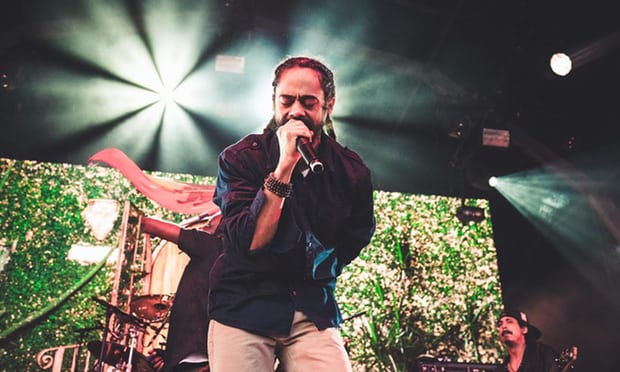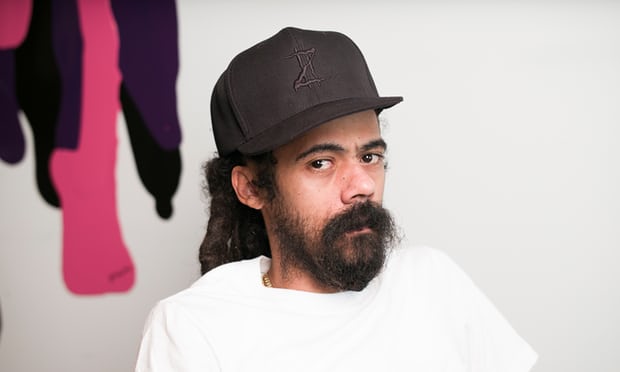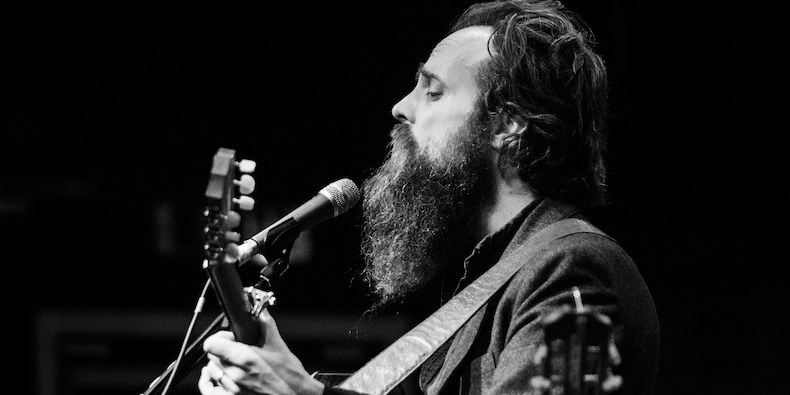Even by Rasta standards, Damian Marley’s dreadlocks look incredible. He says he has been growing them since 1996 and they now reach the floor, which is not without problems: a few years back, a video went viral featuring Marley preparing to play football by stuffing his dreads into a backpack. They’re left flowing as he leaves for the House of Commons. “What am I going to be doing there?” he asks, raising an eyebrow. “You know, your guess is as good as mine.”
He is not there in his capacity as a musician, although he is, by some distance, the most successful of the sprawling Marley clan. His father Bob was not one of life’s monogamists and the number of children he had is open to debate, but the official figure stands at 11. The Melody Makers, fronted by Damian’s brother Ziggy and featuring their siblings Stephen, Sharon and Cedella, had a couple of hit albums in the 80s, but more recently it is Damian, Marley’s youngest child, who has enjoyed the limelight, thanks to a canny fusion of reggae, dancehall and hip-hop. He won a Grammy for his 2005 breakthrough Welcome to Jamrock and topped the US charts in 2010 thanks to his collaborative album with Nas, Distant Relatives. He also performed on Bruno Mars’s debut album; and with SuperHeavy, a bizarre agglomeration of rock royalty that also included Mick Jagger, Dave Stewart, Joss Stone and Bollywood composer AR Rahman; and on Jay-Z’s 4:44 album, singing a version of Jacob Miller’s old roots reggae track Tenement Yard. Marley gave the rapper a tour of Kingston. He says Jay-Z was recognised, although not in the manner he might have expected: “Bunches of girls would run up and say, ‘Is Beyoncé ’usband!’” he chuckles.

Marley is heading to the House of Commons for a debate on marijuana, and they’ve invited the right guy. Not only does he market his own strain of grass (Damian Marley SpeakLife OG, apparently blessed with a “piney taste that encourages inspiration and good vibes”) and plan to open a growing facility in a former Californian prison, he is also quite the spokesman. He offers up facts and figures, medical evidence, and a certain connoisseurship that he compares to being a wine buff: off he goes, discussing THC content, the benefits of pesticide-free farming and the difference between indoor and outdoor growing environments.
Rastafarianism and weed are, of course, major components of the family business. But according to Marley, there was no guarantee he would follow in his father’s footsteps. His dad died when he was two. He was brought up in a privileged area of Kingston called Stony Hill by his mother Cindy Breakspeare, a former Miss World and the subject of the Wailers song Is This Love?, and her husband Tom Tavares-Finson, a criminal attorney and politician. “My stepfather and my little brother and sister are white Jamaicans – I was the only one of brown complexion in the house that we were in. My father was a Rasta and very much from that Marcus Garvey, black upliftment movement. He would be singing against people in my stepfather’s position, which to him was Babylon. So it was interesting to grow up around that knowledge.”
Still, when Marley shelved plans to become an architect in favour of music, he never shied away from his father’s legacy. After he left school, he adopted his dad’s Rastafarian faith. “It means one love, if you want to get it into a slogan. If you look at what Rasta has offered to the world – reggae – it’s a music that’s trying to build bridges and make connections in a positive way,” he says, although it seems there are limits: “Would I play for Donald Trump? I don’t think so. The president is using Twitter like a teenager, it’s immature to me.”
He boasts about his heritage in his lyrics – “no punk cyaan finish weh Bob Marley started,” he roars on 2017’s Here We Go – and today he mentions his father before I do. Perhaps that’s because Damien Marley achieved something Bob didn’t, at least in his lifetime, by breaking America: Bob Marley and the Wailers never had a Top 10 hit like Welcome to Jamrock, nor a platinum single like Make It Bun Dem, Marley’s 2012 collaboration with EDM producer Skrillex. It must be slightly odd, not only to be constantly asked about a father you never really knew, but to be surrounded by reminders of him throughout popular culture. There is a sliver of discomfort at how relentlessly his father’s image is marketed by his estate: not only the expected 40th-anniversary reissue albums and T-shirts but Bob Marley room spray, Bob Marley lip balm and Bob Marley Mellow Mood low-calorie raspberry tea lemonade. “Yeeeaaah,” Marley says, carefully. “I’m a fan of some of them and some of them … not so much.”

Credit: www.theguardian.com
He has other plans outside of making music. He talks about trying to help build an infrastructure “so that you can go and tour Africa the way we would tour Europe or America, try and get promoters from different African countries working together”. He is also thinking, he says, of entering Jamaican politics, “to be in a position where you can actually influence some change”. And that despite the fact he has never voted. He has talked in the past about his disillusionment with the country’s “tribal” political system, and now he says: “There’s a lot of negative energy … who’s to say there’ll be a situation where I’m being voted for. It might not be that, but just being in the system somewhere.”
And with that, he is off to prepare for his visit to Westminster – and perhaps introduce our government to something with a piney taste that encourages inspiration and good vibes.
Damian Marley is touring Europe until 31 August. His album Stony Hill is out now.
Credit: www.theguardian.com


